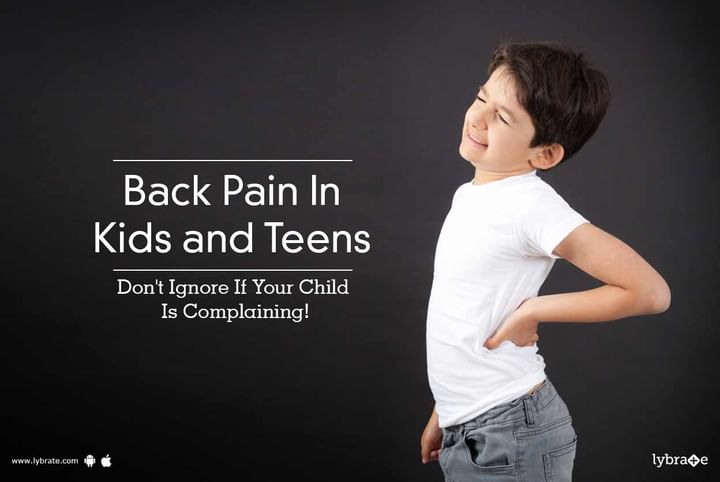Back Pain In Kids and Teens - Don't Ignore If Your Child Is Complaining!
Over the years of adulthood, a combination of bad posture along with wear and tear means that a significant amount of the adult population is affected by back pain. But is this normal for children, as well? Well, in most cases, the answer is a 'No'.
Children and adolescents have a greater degree of flexibility than adults, that is they do not complain of back pain as much as adults do. So when should a parent be worried if their child complains of acute back pain?
If a child is very active, then this could be a cause for concern when it comes to injury to the back. Due to the rough nature of the sort of activity that he or she is engaged in, stress fractures are possible. These injuries are generally explained by overuse. What a parent needs to keep an eye out for is, if the child complains of pain when certain actions are performed. So, back pain which occurs, say, during butterfly stroke when the child swims could mean that the child has a case of spondylolysis or a stress fracture.
If the back pain is so bad that the sleep of the child is disturbed and he or she wakes up on account of it, the parent should take this seriously. The reason for this is that the pain could be caused by a tumour to the spine or an infection. A possibility apart from these two could also be arthritis.
A parent should also be worried when the back pain is not the only thing that the child complains of. That is, if there are other things such as a fever and weakness, as well as pain extending down either or both legs, it could be a sign that the trouble is more than just superficial. In a similar way, when there is trouble walking or there are problems related to the functioning of either the bowel or the bladder, a doctor is to be consulted.
One of the most common cases of back pain in children happens to be Scheuermann’s disease, which is also known as Scheuermann’s kyphosis. What this means is that the spine is rounded in the middle. While this causes pain, it is usually not debilitating enough to hinder normal movement. But, after all, who would want their child to go untreated and suffer as a result?



+1.svg)
